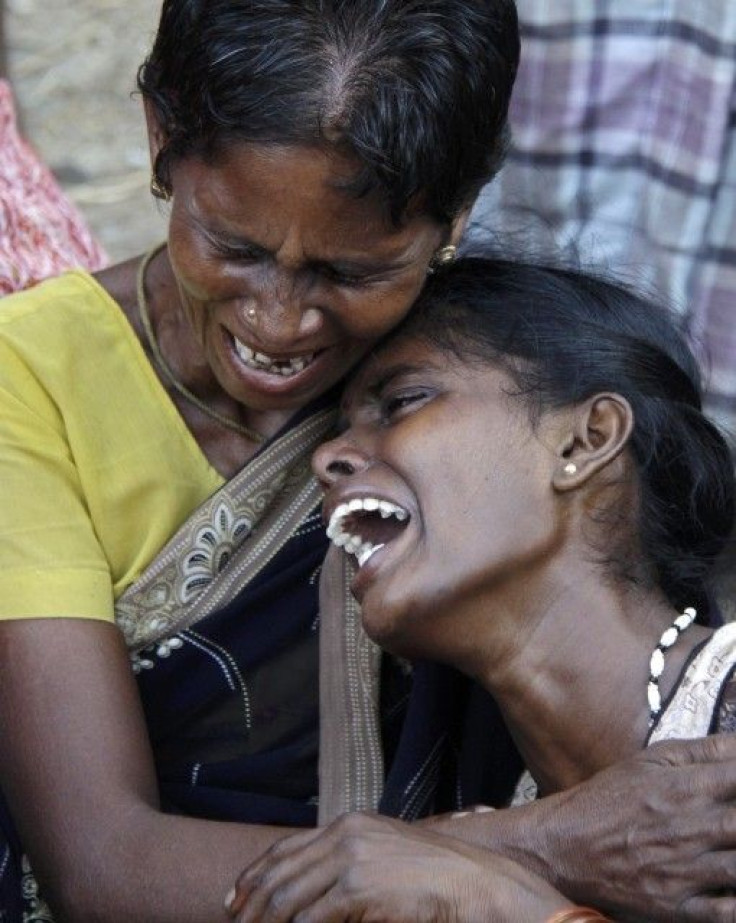Sivakasi: Who To Blame For The Frequent Fire Accidents In India’s Largest Fireworks Industry Hub?

Fire mishaps in India's biggest fireworks manufacturing hub of Sivakasi have been too frequent that the callous government approach in enforcing safety standards seems more shocking than the accidents themselves.
In a fire that broke out at Om Shakthi Fireworks located in Mudhalpatti near Sivakasi, 39 people died while about 70 injured, of which 40 in critical condition are under medical supervision. About 300 people were working at the unit at the time of the accident. A preliminary report on the incident said that 28 of the victims died in explosions in unauthorized storage cells, the Times of India reported.
The license of the factory had been suspended only two days before the accident for failing to meet safety standards, the Indian media reported citing government officials.
"Our officials had conducted an inspection at Om Shakthi a few days ago and found it was overstaffed and stocked excess explosives. We initiated steps to suspend the license," B Rangasamy, deputy chief controller of explosives, was quoted as saying by the Times of India.
A total of 237 lives had been lost and 200 had been injured in the accidents that occurred in the fireworks units in Sivakasi in the last 12 years, an official of the Tamil Nadu Fireworks and Amorces Manufacturers Association (TNFAMA) told IANS.
The official blamed the "casual attitude" of the workers in small and medium-sized units for the accidents.
However, casualty estimates vary greatly depending on the source. P. Raja Gopal, president of Nether's Economic and Educational Development Society (NEEDS), a non-governmental organization, told the Mint newspaper that violation of safety norms had caused around 1,000 deaths in the last 10 years.
V. Ramamoorthy, managing director of Jubilant Crackers, told IANS that mishaps in professionally-run units were comparatively rare and in the event of an accident safety measures were in place to put out fire.
Smaller manufacturers reportedly employ inexperienced workers to meet the market demand during India's Diwali festival season. This leads to accidents, according to IANS.
"While there is little doubt about non-compliance with safety norms on the part of the unit, the tragedy is a telling statement on the failure of enforcement authorities, including Petroleum and Explosives Safety Organization (PESO), in supervising these hazardous units at the peak of their activity in the weeks leading to Diwali," the Hindu said in an editorial.
Production and storage rules "are well established but the non-compliance is willful, to save on costs and time. Cruelly, a part of the savings on costs is often spent on ensuring poor enforcement. Accidents, far from being preventable, therefore end up as inevitable," the commentary said.
In Sivakasi, the second largest fireworks manufacturing hub in the world after Liuyang in Hunan province of China, fireworks is the primary source of income for a significant majority.
It's a standard practice in Sivakasi for fireworks industry workers to take home raw material and deliver the finished goods to their employers, disregarding the risk involved for themselves and for their families.
Home-based fireworks production has also made it easier for manufacturers to circumvent the laws against child labor, with many families, including children, working with raw materials ranging from paper and dyes to highly flammable chemicals often resulting in accidents. Ironically, some children were forced to become industry laborers after their parents were dead or injured in mishaps while working in fireworks production units.
In 1994-95, a state government study sponsored by the U.N. Children's Fund found that around 33,000 children belonging to 6-14 age-group were working in Sivakasi, with 30,000 employed in the match industry and 3,000 in the fireworks industry, a Frontline report published in 2000 said.
A risk analysis conducted by the Tamil Nadu Fire and Rescue Services Department two years ago found Virudhunagar district, where Sivakasi is located, was a "high-risk" zone due to accidents in firecracker units, the Hindu reported.
Tamil Nadu's human rights groups have sought a National Human Rights Commission probe into the circumstances that led to Wednesday's mishap, saying that exposing laborers to hazardous jobs without adequate training accounts to violation of human rights.
© Copyright IBTimes 2024. All rights reserved.












